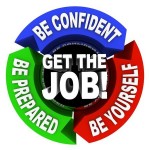26 May 2014
Meet Darren – our new recruit!
We’re delighted to welcome Darren Hymos to our head office team!
Darren joins us with a strong financial background – 28 years’ experience, mainly in corporate roles including both sales and management. So he’s perfectly placed to understand your financial recruitment needs.

Within a broad range of relevant qualifications, Darren holds various chartered business and finance diplomas from his corporate days. He’s highly skilled at helping businesses to reach their potential, and this is an area of his expertise that he’ll transfer to helping jobseekers achieve their dream roles.
Outside of office hours, Darren enjoys playing football, golf, squash and boxing – with several shiny trophies to boast about! He’s also a talented musician, gaining singing and trumpet awards from the Royal Academy of Music. And to top it off, he enjoys cooking! But don’t expect a three course meal when you call in for your interview – although you can expect to see a jar of jelly sweets on his desk if you visit our Chigwell office – he can’t resist them!
Darren’s a fantastic financial mind, a brilliant advisor and an exceptional father. What more could we ask of our new recruitment consultant?!

- How would you describe yourself?
Show your passion for your work. Describe yourself from a business perspective so the interviewer can feed off your enthusiasm. Focusing on your employment skills gives you the chance to show off the traits they’re looking for without taking it to a personal level. - How would your colleagues describe you?
This is especially good if you’re shy about blowing your own trumpet. You can raise the key points of honesty, efficiency and a hard working ethic without feeling embarrassed. - Why do you think you’ll fit into our company?
Having researched the firm, apply your strong personal skills to what you’ve learned about them.
Remember throughout that you need to build rapport with your interviewer. Demonstrating your enthusiasm for your work and the company will create a memorable bond that can score you interview points. Give tangible examples of your knowledge and/or experience, show that you’re genuinely interested in working there, and – very importantly – smile! We’re always happy to offer advice on interview skills – call us before the big day on 020 8532 2644
29 Apr 2014
A head start amongst candidates

This is your opportunity to show the interviewer how enthusiastic you are! Show them that you love the sound of the job, you’re interested in the company and you can’t wait to work there! Any potential employer wants to see how excited you are about the prospect of joining their firm. So give them what they want to see!!
The truth is, other candidates probably have similar financial skills and accounting experience to you – so you need to really set yourself apart. And a great way to do that is to gather as much knowledge about the firm as you possibly can.
Do your homework before the interview so that you’re really clued up. Then you can confidently demonstrate that you’ve researched the company – and the relevant department, if possible. Show an understanding of its strategy, structure, history and how it’s currently performing. Tell them how much you love their products or can relate to the services they offer.
Other candidates might not have bothered to prepare themselves well, so you can shine using your knowledge of what the company offers. And when asked what you can do that others can’t, you’ll be able to relate your financial skills and experience to the insightful company knowledge you’ve already gained.
Enthusiasm is contagious! If you can speak about the company with authority as well as showing that you really can’t wait to join, your passion will certainly impress them.
If you’re not sure how to relate your skills and experience to a new position, ask us about interview prep advice… Email info@staffingsolutions.co.uk.
16 Apr 2014
The three most important interview questions…
There are three key things an interviewer wants to establish. If you can master your answers to these questions, you’re half way to landing the job!
1. Why should we hire you?
This is your opportunity to demonstrate that you have the skills, expertise and experience to perform the job.
2. What can you do for us that other candidates can’t?
Show your enthusiasm for the job and your interest in working for that particular company.
3. What are your key strengths and weaknesses?
Let the interviewer see how well you would fit into the team, culture and company.
This blog focuses on the first question – why the company should hire YOU rather than someone else!
When asked why the company should hire you, you must show them that you have the skills, expertise and experience to carry out the job you’ve applied for.
Think about how your experience and skills (including transferable skills) tie in with the job description. Start with any specific or technical skills that the role requires and give examples of how you have tackled similar tasks. This is your chance to let them see that you CAN do this job – and do it well.
If you don’t have relevant experience but can demonstrate that you’ve done something similar and you’re competent to learn quickly, that’s fine too. This is your chance to explain why you can do the job as well as – or better than – the next candidate.
Next, consider the general skills that make a good team player, such as communicating well, being competent on the computer and so on. Focusing about these points that everyone can relate to will stop you from getting sidetracked into talking about things that are not relevant.
Relate back to these key skills and your own experience when answering questions about yourself. These examples will help to get you started…
- Tell me about yourself?
Tell them why you enjoy this kind of work.
“I’m passionate about…” “I’ve always loved working with….” - What are your greatest strengths / weaknesses?
Focusing on your work experience is less daunting than simply discussing your personal strengths.
“I successfully completed project X because I’m tenacious, motivated and work to deadline.” - What can you do for us that other candidates can’t?
Don’t be shy! This is your chance to shine.
“In my last role, I implemented new systems that have proven beneficial to the whole team…” - Why do you think you are right for this job?
Why do you?? Make sure you have an answer prepared.
“I have the expertise you need to hit the ground running…” “My experience has proven I can do this job well, and I’m quick to learn new systems…” - What do you think the main challenges will be?
All jobs come with challenges; don’t be blasé, but end on a positive note.
“Adapting to your systems, but I’m sure I’ll pick things up quickly…”
Next blog: what can you do for us that other candidates can’t?
07 Nov 2013
Awesome interview tips
We’ve had some excellent feedback from our recent blog giving you advice on body language during your interview. So, we thought we’d follow this up with these hilarious job interview tips by a super-funny man named Michael Spicer, which he originally posted on his own blog and we shared from www.accountingbites.com.
- Bring a box to the interview, point at it and say “I do all my thinking outside of that.” Then open some champagne.
- When asked if you want anything to drink, say “Just a glass of job please!” Then laugh for 15 minutes. No less.
- When shown to the interview room, walk further up the corridor & say “I always go the extra mile!” Then click your heels.
- Show you give 110% by pouring 10% too much water into your glass. Smile knowingly.
- Wear a sock puppet on one hand, make it whisper in your ear and say “What’s that, Mr Wuzzles? I seem ideal for the job?”
- Loosen your tie as you enter & say “Phew! Is it me or did it get 100% more dynamic in here?” Then reverse high five them.
- Tell them you won’t need a lunch hour because you’re powered by results. Then make a powerboat noise for about 8 minutes.
- Dress as an American footballer to show you’re a team player. And have ‘Sustained Growth’ written on your football.
- Show you’re a fast learner by wearing an L plate round your neck & a Usain Bolt face-mask. Don’t speak. They’ll get it.
- When asked if YOU have a question, reply “Where do you see YOURSELF in 5 years’ time, nosey?” Laugh. Pass around some mints.
- When asked where you see yourself in 5 years, say “owner of a B&B for cats” and tap your nose like you know the market.
- Give your interviewer a hollow pork pie. Then lean back and say “That’s your company – I’m your pork.”
- Get a friend to call you during the interview and say “I can’t talk now, I’m on a date. With destiny!” then wink at them.
- Guarantee a second interview by wearing clown shoes at the first interview and not mentioning it until the second interview.
- Know the interviewer’s name and use it during the interview. If you’re not sure what it is, call them “Jobsy” or “Jobbo”.
- Tattoo your limitations down one arm. Interviewers admire honesty.
- As you walk to the interview room with the interviewer, try to make small talk such as “You look like my real father.”
Brilliant – advice, although not for when you’re at an interview arranged by Financial Staffing Solutions…
We do love this, but for some real advice on performing a knockout interview, call us on 020 8532 2644.
21 Oct 2013
Making your body language work for you
First impressions count! Our body language can be make or break us when it comes to meeting someone for the first time. However confident and well-spoken you are, poor body language will work against you in an interview. You want to avoid any chance of being misinterpreted, so follow these simple dos and don’ts to ensure you stand out – for the right reasons.
Handshake
A firm handshake shows confidence.
Do:
- Look your interviewer in the eye and smile as you extend your hand. This shows that you feel confident, even if you really don’t.
- Hold firmly. A weak handshake gives the impression that you’re timid and insecure.
Don’t:
- Squeeze so hard that they yelp in pain.
- Over-enthusiastically bounce their arm up and down.
Posture
We don’t generally think about our posture as we’re simply sitting or standing, but this can project how confident we feel and how engaged we are in the conversation. It also helps to build rapport between you and your interviewer.
Do:
- Aim to sit with your lower back touching the back of the chair and your feet firmly on the floor. This gives a professional and confident start to the interview.
- Lean forward slightly towards your interviewer. This shows that you’re interested in what they’re saying.
- Keep your hands in your lap.
Don’t:
- Slump – it’s unprofessional and gives the impression that you’re not interested.
- Lean too far forward – they’ll think you can’t wait to get away.
- Cross your arms or put your hands in your pockets. You don’t want to appear stiff and unfriendly.
- Get too relaxed, you can end up looking unprofessional. For example, avoid putting your ankle on your other knee. This could be interpreted as laziness.
- Rock backwards and forwards in your chair – they’ll think you need to go to the loo.
Eye Contact
There’s a fine line between eye contact that builds rapport and that which makes the other person feel uncomfortable.
Do:
- Maintain eye contact during conversations (eight seconds is good), then briefly glance away.
- Look up from your note-taking (if you’re taking notes) when the interviewer asks you a question or they’re explaining something.
Don’t:
- Avoid looking at your interviewer.
- Look at your hands as you’re talking
- Stare at your interviewer without taking a break – you’ll freak them out.
Voice
The speed, tone and pitch at which you speak contributes to the impression you give.
Do:
- Speak in your normal voice – friendly, knowledgeable and as confident as possible.
- Vary your tone and pitch, you don’t want to come across as boring and you do want to emphasize certain points about why they should choose you.
- Try to control your voice. If you are nervous, take a deep breath to help you relax before speaking.
Don’t:
- Speak too fast. Jabbering can make you hard to understand and you will appear nervous.
- Sound apologetic or defensive, as this shows you feel insecure.
Engage
Use your body language to show you’re engaging with, and feel connected to, your interviewer.
Do:
- Nod your head to show you agree and understand what they’re saying.
- Tilt your head slightly to show you’re listening carefully.
- Be aware of fidgeting and try to control it.
- Use your hands to emphasise points you feel passionate about.
- Mirror your interviewer’s body language. This is something we do naturally when we build a rapport with someone. To speed things along, make a conscious effort to adopt a similar pose.
Don’t:
- Bob your head up and down constantly, as that could seem like you’re just agreeing with everything and not actually listening to them.
- Wave your arms around like a windmill.
- Play with your hair, drum on the desktop or tap your feet. These sort of actions are conscious, we’re not always aware we’re doing them. But they are distractions and may be seen as signs you are bored or have trouble focusing.
- Keep touching your nose – it’s a sign you may be lying.
- Copy everything they do – that’s just creepy!
Your interviewer’s body language
Building rapport is a two way street. Reading your interviewer’s body language can give you an idea about how he or she is responding to you. As the mood relaxes, does their body language adapt to mirror yours?
Following these simple guidelines will give you a head start in the confidence stakes. Call us today on 020 8532 2644 if you would like a more personalised coaching session to ensure you perform to superstar standard in your next interview!



